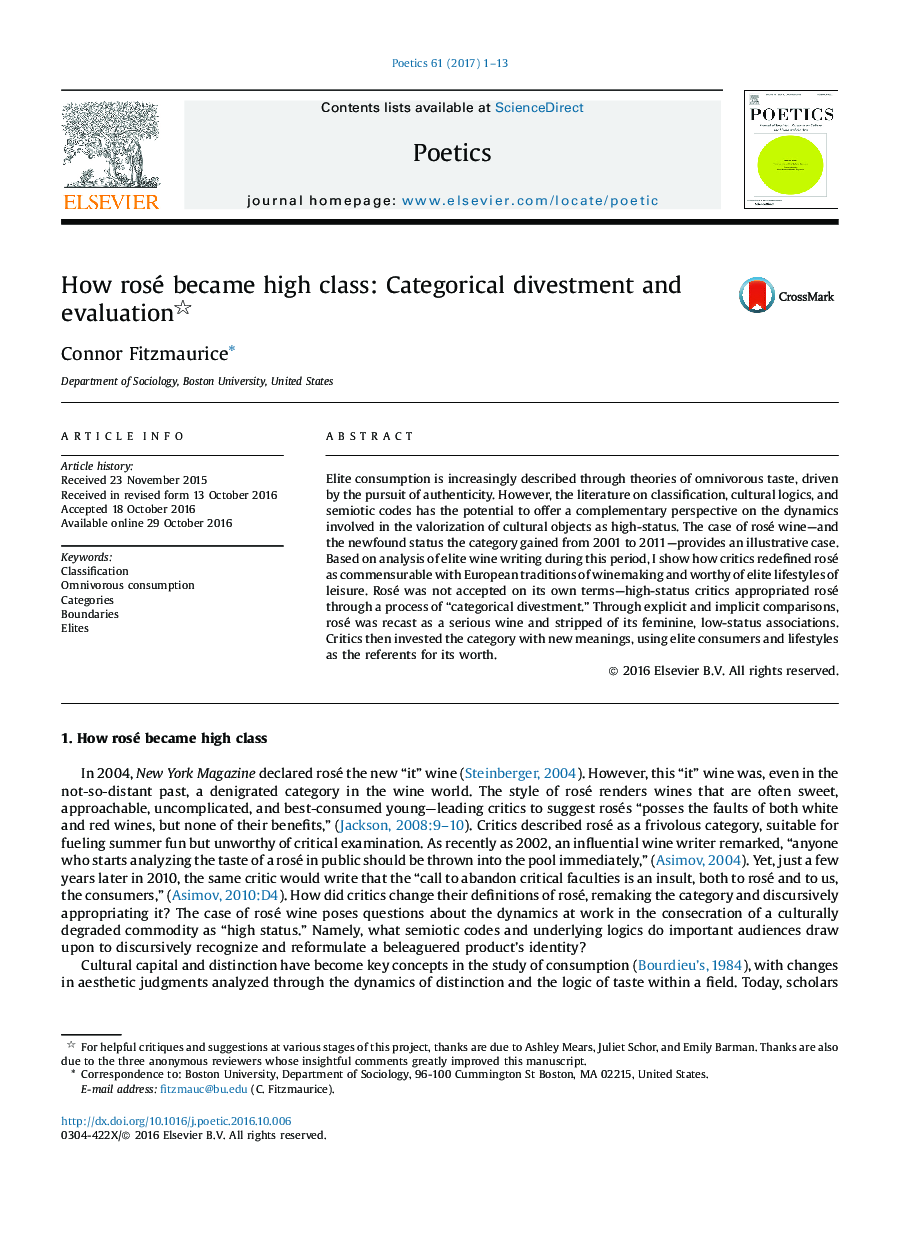| Article ID | Journal | Published Year | Pages | File Type |
|---|---|---|---|---|
| 5126711 | Poetics | 2017 | 13 Pages |
â¢Rosé wine gained new prestige in elite wine writing between 2001 and 2011.â¢Rosé was not accepted solely based on broadened notions of acceptable taste.â¢Rosé was redefined to be less feminine, and comparable with elite lifestyles and preferences.â¢High-status critics redefined rosé's flavor, complexity, time of consumption, and origin.â¢Critics' divestment from rosé's categorical identity emphasized stylistic conformity.
Elite consumption is increasingly described through theories of omnivorous taste, driven by the pursuit of authenticity. However, the literature on classification, cultural logics, and semiotic codes has the potential to offer a complementary perspective on the dynamics involved in the valorization of cultural objects as high-status. The case of rosé wine-and the newfound status the category gained from 2001 to 2011-provides an illustrative case. Based on analysis of elite wine writing during this period, I show how critics redefined rosé as commensurable with European traditions of winemaking and worthy of elite lifestyles of leisure. Rosé was not accepted on its own terms-high-status critics appropriated rosé through a process of “categorical divestment.” Through explicit and implicit comparisons, rosé was recast as a serious wine and stripped of its feminine, low-status associations. Critics then invested the category with new meanings, using elite consumers and lifestyles as the referents for its worth.
